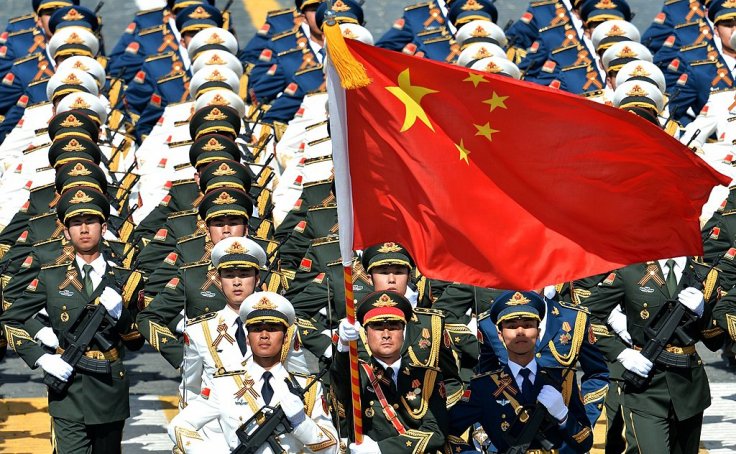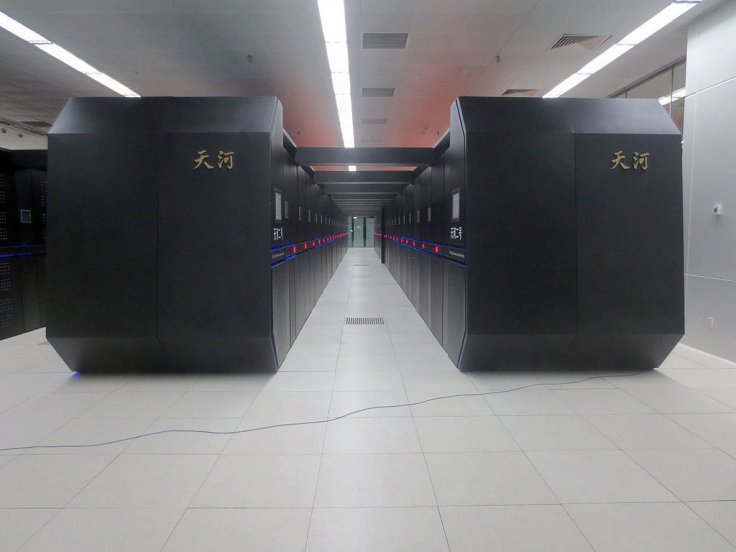Chinese genome sequencing company BGI Group, which was previously known as the Beijing Genomics Institute, has sold millions of COVID-19 test kits outside mainland China, including the US, Europe and Australia. But according to a newly published report, it was found that the Shenzhen-based firm has deep ties to the People's Liberation Army (PLA) and that became a concern of the US intelligence officials.
Reuters reviewed over 40 publicly available documents, as well as research papers in Chinese and English. The analysis of the documents revealed BGI's links to the PLA that included research with the country's top military supercomputing experts.
This week another report from 60 Minutes revealed that the Chinese firm offered to build COVID-19 labs in at least six American states. But intelligence officials in the US issued warnings not to share health data with BGI. The US security officials have warned labs against the use of Chinese test kits.
As per the report, Bill Evanina, the country's top counterintelligence officer, believes that the Chinese are trying to collect DNA to control the world's biodata. But BGI has denied such allegations.

The Analysis of Documents
Reuters reported that in terms of the US suspicion, the reviewed documents are neither contradictory nor supportive. But it added that the documents showed a much deeper link between BGI and the Chinese military than what was known. It also revealed how the Asian county has moved to integrate the private technology firms into military-related research under the leadership of Xi Jinping.
"BGI has worked on PLA projects seeking to make members of the ethnic Han Chinese majority less susceptible to altitude sickness—genetic research that would benefit soldiers in some border areas," found Reuters.
According to Elsa Kania, who is an adjunct senior fellow at the Center for a New American Security think tank, the Chinese military has pushed research on brain science, the creation of artificial DNA and gene editing that could have an application in the future bioweapons. She added that the world's largest biotech firm's deep ties with the Chinese military was a "reasonable concern to raise" for US officials.
However, in a statement, the company told Reuters that it follows international standards and Chinese laws related to open science, data sharing and genomic research. "BGI strongly rejects any accusations about links with the PLA, particularly in relation to our COVID-19 test kits," it added.
PLA and the Top Biotech Firm
Chinese company BGI has sold genetic sequencing services to universities and healthcare systems all around the world and accumulated a large DNA databank. In 2010, the company created China's first cloned pig.
The Reuters report pointed out a research paper which was authored by BGI founders Yang Huanming and Wang Jian in collaboration with PLA's Key Laboratory of High-Altitude Medicine and the Third Military Medical University. The focus of the paper was to experiment with the brains of monkeys who were suffering from altitude sickness. The research paper, published in 2020, said that the study was funded as one of the "key projects of military science and technology" by the PLA.

BGI's Wang was involved in another study from 2017 that was published in collaboration with a PLA research center in Xinjiang. In this particular research, experts looked at the effects of rapid ascent to high altitude on the bodies of "young, healthy men."
A 2018 study by the PLA lab said: "High altitude disease is the main reason for reduced combat effectiveness and health damage to soldiers at high altitudes and influences the results of war." Since China has the world's longest highland border, the purpose of such studies can be understood.
But when Reuters asked BGI regarding such research programs it said the collaboration with PLA and the Third Military Medical University was for "academic purposes only".
However, in recent times, after the novel Coronavirus hit China in 2019, BGI's current chief infectious disease scientist Chen Weijun took virus samples from a military hospital in Wuhan and became one of the first scientists to sequence the genome of the SARS-CoV-2. According to Reuters, the scientist is listed as affiliated with the PLA's Academy of Military Medical Science. But BGI said Chen had no connection to the academy since 2012.
In 2015, a patent was granted to BGI and the PLA's academy for a low-cost test kit to detect respiratory pathogens, including SARS and other viruses from the Coronavirus family. Chen is listed as an inventor on the patent documents. In terms of the COVID-19 test kit, BGI said it did not use the method jointly patented with PLA.
National University of Defence Technology
Reuters also revealed that four BGI researchers have been found to be affiliated with another military organization in China, the National University of Defence Technology (NUDT), which is on the US blacklist.
NUDT runs under the supervision of the Central Military Commission, the top-level body that directs the Chinese military and is headed by Xi Jinping. It was blacklisted because the US considers NUDT as a national threat due to the Tianhe-2 supercomputer, which is one of the world's most powerful computers and is used to simulate nuclear explosions. "One researcher, Peng Shaoliang, was instrumental in developing software to speed up BGI's sequencing of human genomes using supercomputing developed by NUDT," reported Reuters.

In response, BGI said that Peng and Liao Xiangke—who is the head of the NUDT's supercomputer program and a major general in the PLA—"were two collaborators of BGI for the project at the time for the purpose of academic exchange only. Since the project ended BGI has no more affiliation with them."
BGI also stated that it uses the supercomputer located in the National Supercomputer Center in Guangzhou on a commercial basis and other supercomputing platforms to speed up the research process.









